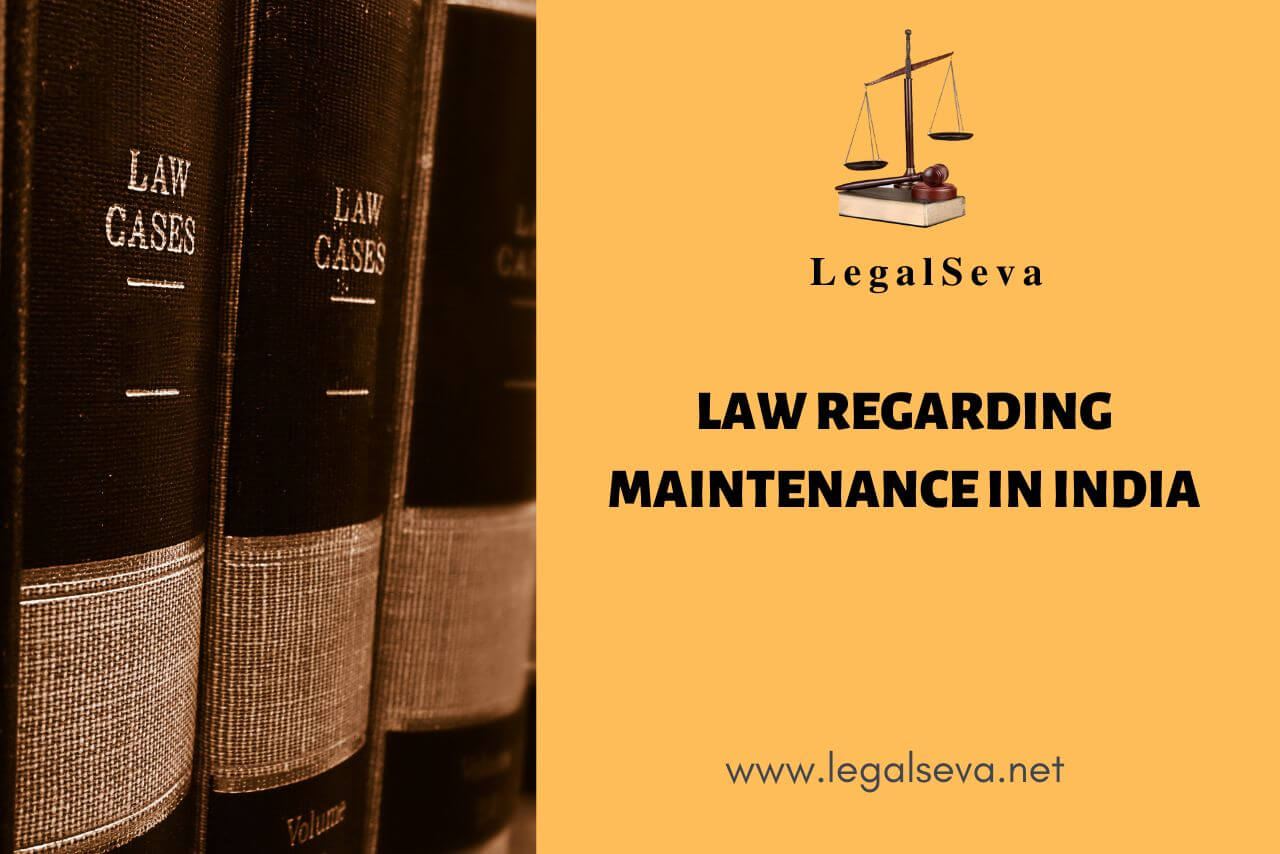Last Updated on June 20, 2024 by Satish Mishra
What is Maintenance?
The dictionary meaning of the word “maintenance” is “the process of preserving a condition or situation or the state of being preserved”.
However, in legal terms, it is used to describe the security that a man provides for his (then) wife and children after separation. The word is also used to describe the security provided to parents during their old age. In India, maintenance laws are governed by a number of different laws and statutes which are specific to a community of citizens.
Also Read- MAINTENANCE IS YOUR RIGHT WHEN YOU CAN’T.
Widely speaking, maintenance can be grouped into two types.
Interim maintenance
While the legal proceedings are still underway, a husband is required to pay maintenance for the wife, along with the expenses of the proceedings. The interim maintenance is payable from the date the petition is filed, till the time the final order is passed.
Permanent maintenance
The provision of permanent maintenance or alimony exists in the laws of all the communities. When a decree of dissolution of marriage or judicial separation is obtained by the wife, the court may order that the husband shall pay the wife any particular amount fixed by the court, either periodically, or in one go as a lump-sum payment.
However, there are a number of specific laws which only govern the people who fall under those communities. For example, Hindi law, Muslim law, Parsi law, etc.
Also Read- CALCULATING MAINTENANCE DURING DIVORCE
Maintenance under the Hindu Law.
Hindu Adoption and Maintenance Act, 1956 gives a right to a divorced Hindu woman to claim maintenance from her husband.
Under Hindu laws, the quantum of maintenance amount is based on several factors like husband’s financial income, assets, liabilities, wife’s employment and earning status etc.
Section 18 to 28 of the Hindu Adoption and Maintenance Act briefly explains the various circumstances in which a woman can claim for maintenance and the amount of the claim as well.
Also Read- DOWRY COMPLAINT AGAINST IN LAWS
Maintenance under Muslim Law.
Muslim Women (Protection of Rights on Divorce) Act, 1986 gives a right to a Muslim woman to claim maintenance from her husband.
According to the act, a divorced Muslim woman can claim maintenance in the following cases :
1. During the iddat period, reasonable and fair maintenance has to be paid to the wife. (Iddat period is the time period after divorce [or death of the husband] during which a Muslim woman is not allowed to marry another man, which is three months after the divorce)
2. Mehr agreed at the time of marriage has to be given back. (is a mandatory payment, in the form of money or possessions paid by the groom, to the bride at the time of marriage, that legally becomes her property)
3. When the woman has to maintain herself and her children, maintenance has to be paid for a period of 2 years. If the child is born after the divorce, then the 2 year period begins from the child’s date of birth.
4. All property was given to her by her relatives, friends or husband before, at the time or after.
Also Read- MARRYING FOR SEXUAL PLEASURE? THINK AGAIN- DELHI HC
Maintenance under Parsi Law.
The Parsi Marriage and Divorce Act, 1936 gives the right to maintenance to a Parsi woman.
The court can grant a peak of one-fifth of the husband’s net income as maintenance. The court weighs factors like the husband’s capacity to pay, property and other assets owned by the wife and the personal conduct of the husband and wife. The husband is liable to pay maintenance to the wife for her lifetime only if she remains unmarried and chaste after the divorce.
Also Read- COMPLAINT AGAINST NRI HUSBANDS
Maintenance under Christian Law.
Divorced Christian women can claim maintenance under the Indian Divorce Act, 1869. The Act prescribes one-fifth of the husband’s income as the maximum maintenance amount.
Maintenance in case of inter-caste marriages.
The Special Marriage Act of 1954 governs the maintenance provisions of inter-caste marriages.
Maintenance under the Criminal Procedure Code.
Under Section 125 of the Code of Criminal Procedure, 1973, right of maintenance extends not only to the wife and dependent children but also to impoverished parents and divorced wives. The maintenance claim depends upon the husband’s capability to provide sufficient means. The maximum amount of claim was once Rs. 500 per month which is now struck down. The Magistrate has the power to award the amount that it deems fit. It changes according to circumstances.
A Class I Magistrate may require a person to pay a monthly allowance for the maintenance of his wife, child, father or mother when there is substantial evidence of negligence and unwillingness by the man to maintain them.
However, under Section 125 of the CrPC, a wife will not be qualified to receive maintenance if she has perpetrated adultery, declines to live with her husband or separates from her husband by mutual consent.
Also Read- PROCEDURE IN DOMESTIC VIOLENCE CASES IN TRICITY
You can always take the assistance of Maintenance lawyers in Chandigarh Panchkula Mohali for your Maintenance case whenever possible.
This post is written by Ahana Kurande of Mumbai University (Law). For more info on subject, please dial 99888-17966.
